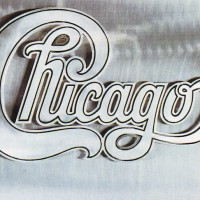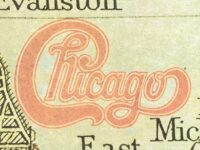Chicago was at a low creative ebb by the time Chicago VIII arrived on March 24, 1975. Perhaps that’s to be expected from a group that began their career with a trio of studio double albums and then a four-disc package of concert material.
They tried to fight off this collective malaise by exploring a dizzying number of textures, genres and tones – but with worsening chart results. Chicago VIII topped the charts, but only briefly. “Harry Truman,” the advance single, made it to the Top 20 while “Old Days” went to No. 5, but the the third single, “Brand New Love Affair, Part I & II,” stalled at No. 61.
Chicago would take an extended break after this, releasing a blockbuster greatest-hits package in the interim that completely ignored Chicago VIII. It wasn’t the last time, as this project became broadly regarded as one of the weakest from the original lineup.
Let’s begin a critical re-evaluation, beginning with an exploration of the album’s often-intriguing deep cuts. An expanded 2002 reissue from Rhino Records included unreleased material, offering more insight into Chicago’s musical mindset at the time. Together, they provided five lesser-known moments that make Chicago VIII worth a return visit:
‘HIDEAWAY’
As Chicago’s “Hideaway” illustrates, Peter Cetera could and did rock – despite often being blamed for the band’s shift from more musically adventurous, uptempo rock and roll with horns toward limp, hornless ballads.
A spotlight for the tight rhythm section, “Hideaway” features a driving beat from Danny Seraphine (who unleashes some really cool fills), one of Terry Kath’s more rocking solos, Cetera’s strong and underrated bass groove and then, toward the end, great piano work by Robert Lamm. It all feels like a thank you note from Peter Cetera to Kath for his beautiful vocals on “Wishing You Were Here” from 1974’s Chicago VII.
Where “Wishing You Were Here” was exactly what one would expect from Cetera, given his reputation for ballads, “Hideaway” is anything but. He provided Chicago’s late guitarist an opportunity to just totally cut loose, both on rhythm and lead. Between a hard-driving riff that powers things along and scorching solos that beg for the volume to be cranked to 11, this song couldn’t have been a more perfect platform for Terry Kath’s talent.
Cetera also gave Lamm a chance to shine: He adds piano work that would not have sounded out of place at a roadhouse bar where people are packed like sardines amid sticky floors and the stench of stale beer and urine. Lamm’s playing tends to be informed more by classical, R&B and jazz on much of Chicago’s material, but his contributions to “Hideaway” are pure rock and roll.
Rather than highlighting the horn section, this track becomes a welcome showcase for the equally talented and often underrated rhythm section of Kath, Cetera, and Seraphine. The chemistry between the three of them is palpable throughout. “Hideaway” also offers a reassurance to fans who may have felt the band was taking themselves a bit too seriously with the jazz tracks on Chicago VII. This showed they still knew how to have some fun and cut loose.
All that said, one can’t help but wonder if the lack of horns on “Hideaway” was one of the first seeds of acrimony with Cetera that inevitably contributed to his 1985 split from the band. – Perplexio
‘LONG TIME NO SEE’
“Long Time No See” is about a friend who is lost in two ways: He hasn’t not been around for awhile, and seems to have drifted in life, as well. The lyrics have never been on my mind when listening to this Robert Lamm track, however, because of the very interesting musical arrangement.
The song proves that Lamm could still come up with something unique when he was motivated. “Long Time No See” is not traditional Chicago in any way. It doesn’t sound like their early records nor does it fit in with the pop-oriented road Chicago turned onto later. Despite the downer subject matter, “Long Time No See” is a loud, rocking song that makes full use of the low end of the musical scale. Walt Parazaider’s flute and one of my favorite instruments, the baritone sax, provide a deep low end accompanied by the full horn section blasting away in assistance. Terry Kath and Peter Cetera add some fine bottom-end work, too.
There is no jazz or R&B to be found here. A fast rocker, “Long Time No See” can come off a bit gimmicky at times, partially due to a Robert Lamm vocal that sounds like he’s singing through a megaphone. But he makes the whole affair sound more fun than the subject matter would suggest.
“Long Time No See” is a Chicago obscurity, except to their die-hard fans, but well worth the time you’ll spend listening to it. – Charlie Ricci
‘AIN’T IT BLUE?’
My addiction to music continues unabated. Fortunately, I’ve yet to overdose on it – and that is a very good thing because I know rehab would be of no help.
One of the things I’ve learned through this lifelong obsession is that songwriting is almost always the most important part of a great listening experience. How many times have you been transfixed by a song despite a less-than-stellar performance? It’s true that a weak performance can make a good composition seem less powerful, but nothing can save a truly poor song.
Bob Dylan proves my theory. Is he a great singer? Of course not. Can he play guitar? Yes, but is a Dylan record the direction you head if you want to hear a great axeman? To that question, I’ll respond with the same answer. However, if you want to hear a compelling, often-emotional song, more often than not, he is the man.
Why is this point relevant to a minor Chicago song like Robert Lamm’s “Ain’t It Blue?” It’s because this deep track proves the rule. “Ain’t It Blue” was written in the spirit of the band’s early work and would easily fit on any of their classic, pre-Caribou Ranch records. It has perfect vocals by Peter Cetera and Terry Kath, as well as the latter’s usual hot, electric lead contributions that make the song rock. It also offers us some great horn lines, but would any of that matter if it wasn’t a good song?
Did Chicago degenerate into a group of bad musicians as the quality of their albums declined? No, their excellent vocals and musical chops remained in tact. It’s just that they didn’t make the best use of their composing, arranging, and production abilities as often as they did in the past.
So, when you hear something as horribly written as Cetera’s harmonica on “In Terms of Two” from 1973’s Chicago VI, quickly listen to “Ain’t It Blue” as a reminder of the kind of music this once-great septet was still capable of making if they hadn’t let laziness, commercial goals, and the excesses of the Hollywood lifestyle get in the way.
It wasn’t that Peter Cetera couldn’t play the harmonica any better on the earlier track, it’s what he played that mattered. – Charlie Ricci
‘SIXTH SENSE’
When Rhino re-released Chicago’s back catalog with bonus tracks, some were a bit uneven. At times, it even felt like subtraction by addition: They took away from the feel of the album as opposed to adding to it.
The bonus tracks added to Chicago VIII, starting with “Sixth Sense,” make it one of the exceptions to that rule. The instrumentals that would not have sounded out of place on the jazz portion of the earlier Chicago VII, and all are substantially stronger than what one might consider to be the three weakest tracks on either Chicago VII or VIII.
“Sixth Sense” is a great kick-off to the extra songs. There’s a feel of the band playing as a cohesive whole in a way some would argue they had not sounded since 1972’s Chicago V or possibly even as far back as 1970’s Chicago II. Percussionist Laudir de Olivera adds a subtle Latin-flavored tinge to the rhythm section, giving extra depth and dimension to Danny Seraphine’s drumming. The horns act as vocalists, playing so tightly together that they sound as one.
Terry Kath and Robert Lamm also display a tight chemistry, with Terry’s guitar and Robert’s organ work playing brilliantly off each other. Terry does have a brief solo that adds a bit of rock to what would otherwise be a straight-ahead jazz piece. His rhythm guitar work is beautiful in its subtlety and fits like a glove with Peter Cetera’s bass playing, as well as Danny and Laudir’s percussion.
Speaking of solos, Lee Loughnane delivers what is arguably his best turn on the trumpet since “Introduction” on Chicago’s debut. As much as I love and have always loved Chicago’s tight horn section, in hindsight it’s been Loughnane’s trumpet playing that has particularly stuck out for me – both on the aforementioned “Introduction” and also on “Sixth Sense,” among others.
The only complaint I have on “Sixth Sense” is that fans didn’t get to hear it until 2002. It’s a song that should have made the cut at the time of Chicago VIII’s original release. – Perplexio
‘BRIGHT EYES’
Despite the fact Chicago VIII was a No. 1 smash with two hit singles, the album always left me unimpressed. Chicago seems a little tired, just needing some time off the road and out of the studio. That being said, I find the three bonus tracks added to the remastered 2002 Rhino release quite engaging.
“Bright Eyes,” a Robert Lamm’s contribution, may not be as strong as the two bonus instrumentals but it is still a delight. Jazzy and infectious, riding on a wave of Rhodes, hi-hat, bass drum and Laudir de Oliveira shakers and bongos, the song has a delicate samba feel. Drummer Danny Seraphine keeps things simple and elegant as Terry Kath adds delicate jazz licks to the sonic stew.
Lamm’s vocals are carefree, with an almost first-take feel, and there are just slight hints of Peter Cetera’s bass. The fabled Chicago horns are not included on “Bright Eyes,” as producer James Guercio knows exactly how to employ the less-is-more approach. The song could have been included in Chicago VII – and, in fact, may have been pushed off by some of the more pop-oriented songs. Luckily, it finally made it onto VIII, 27 years later. – Preston Frazier
- Ernesto Cervini’s Turboprop, “When I Fall” (2024): Video premiere - March 15, 2024
- Disaster Pony,“Dead Neon & The Noon Sun” from ‘Disaster Pony’ (2024): Video premiere - February 27, 2024
- Christopher Hoffman, “Farewell Forever” from ‘Vision Is The Identity’ (2024): Streaming premiere - February 19, 2024




